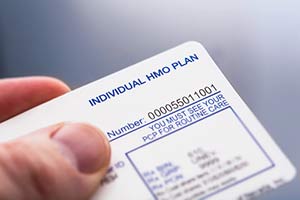victims for over 25 years.
Healthcare Billing Fraud in Denver
In past articles, I’ve made it pretty clear that I am fed up with hospital billing practices that victimize people who have been in car or motorcycle accidents.
In a nutshell: hospitals do everything in their power (sometimes skirting the law) to charge victims the absolute maximum that they can. Even when the victim has health insurance, which should help to keep costs low, thanks to mutually agreed-upon fees between the hospital and insurer, the hospital won’t submit bills to the victim’s health insurance so that it can stake a claim on a future legal settlement against the at-fault driver. It’s healthcare billing fraud, and we’re fed up with seeing it happen.
Never give the hospital the other driver’s insurance information.
 It works like this: a car or motorcycle accident victim is taken to a hospital for treatment. When the hospital billing department discovers that an accident was involved, they start seeing dollar signs. Why? Because that victim will have the opportunity to sue the other driver’s insurance company for the money to cover his or her medical bills and other losses. The hospital, which could (legally should) simply work with the victim’s health insurance to cover costs, will instead withhold all billing and wait to see if the victim receives a settlement from the other driver’s insurance. If that happens, the hospital will file a lien against the settlement for all the victim’s medical bills; that lien will be marked way up at a billing rate that is far higher than what the hospital could have (should have) gotten from the victim’s health insurance already.
It works like this: a car or motorcycle accident victim is taken to a hospital for treatment. When the hospital billing department discovers that an accident was involved, they start seeing dollar signs. Why? Because that victim will have the opportunity to sue the other driver’s insurance company for the money to cover his or her medical bills and other losses. The hospital, which could (legally should) simply work with the victim’s health insurance to cover costs, will instead withhold all billing and wait to see if the victim receives a settlement from the other driver’s insurance. If that happens, the hospital will file a lien against the settlement for all the victim’s medical bills; that lien will be marked way up at a billing rate that is far higher than what the hospital could have (should have) gotten from the victim’s health insurance already.
The result: the victim receives less money from the settlement, because the hospital took so much and healthcare billing fraud. In my experience, the victim likely needs that money for future care and to cover losses.
How to Protect Yourself from Healthcare Billing Fraud After an Accident
 So, how can you protect yourself from these underhanded billing practices? You and your loved ones must be strong advocates from the very beginning of your medical treatment.
So, how can you protect yourself from these underhanded billing practices? You and your loved ones must be strong advocates from the very beginning of your medical treatment.
- Never give the hospital the other driver’s insurance information. Often, victims in car accidents give the at-fault driver’s insurance information to the hospital because they think, “This wasn’t my fault; the other driver will pay for everything.” That is not how the system works in Colorado. Here, you will not receive a settlement from the other driver’s insurance company until after you’ve received all your treatment. Therefore, give the hospital your health insurance information. That is why you have it! Your future settlement from the at-fault driver’s insurance company should cover your out-of-pocket costs.
- NEW ADVICE: I’ve written about this topic before, but I now believe you must take another step when being admitted to a hospital. Because the hospital will literally skirt the law in order to make as much money off of your treatment as possible, you must explicitly state, in writing, that you only authorize them to use your healthcare insurance. Here is the language I recommend:
I am providing my healthcare insurance to [name of hospital] and I only authorize treatment through my healthcare insurance provider’s in-network services. If [name of hospital] chooses to provide out-of-network services in my treatment, then [name of hospital] will be responsible for those costs.”
It is absolutely criminal that, at a time when a person may be suffering tremendously, he or his loved ones must instantly begin a fight with the hospital over unethical billing practices. Yes, I believe it is unethical and immoral for a hospital to try to squeeze extra cash out of a person who carries healthcare insurance.
Read this Book: “An American Sickness”
 If you still believe that hospitals provide a community service and that they have a right to bill whatever they want for keeping people healthy and saving their lives, you need to read “An American Sickness: How Healthcare Became Big Business and How You Can Take It Back,” by Elisabeth Rosenthal.
If you still believe that hospitals provide a community service and that they have a right to bill whatever they want for keeping people healthy and saving their lives, you need to read “An American Sickness: How Healthcare Became Big Business and How You Can Take It Back,” by Elisabeth Rosenthal.
Terry Gross on NPR’s Fresh Air recently interviewed Ms. Rosenthal and the transcript of that interview is available here. In that interview, Rosenthal shared the following:
On initiating conversations early on with doctors about fees and medical bills,
“You should start every conversation with a doctor’s office by asking “Is there a concierge fee? Are they affiliated with a hospital? Which hospital are they affiliated with? Is the office considered part of a hospital?” In which case you’re going to be facing hospital fees in addition to your doctor’s office fees. You ask your doctor always … “If I need a lab test, if I need an X-ray, will you send me to an in-network provider so I don’t get hit by out-of-network fees?” …
Often that will be a little hard for your doctor, because they may have to fill out a different requisition, but it’s worth asking. And any doctor who won’t help you in that way, I think, isn’t attuned to the financial cost that we’re bearing today.”
On how to decipher coded medical bills,
“Don’t be alarmed by the “prompt payment discount.” Go back to the hospital and say, “I want a fully itemized bill. I want to know what I’m paying for.” Some of it will be in codes, some of it will be in medical abbreviations. I’ve discovered you can Google those codes and find out what you’re being charged for, often, and most importantly, you might find you’re being charged for stuff that obviously you know you didn’t have.”
Rosenthal also says, “We’ve trusted a lot of our health care to for-profit businesses and it’s their job, frankly, to make a profit. You can’t expect them to act like Mother Teresas.”
If you have been the victim of an accident and you fear that a hospital is taking advantage of you, contact our experienced Denver car accident lawyers today for a free case evaluation.
Free Consultation
Search For
Recent Articles
- What Factors Affect the Outcome in a Personal Injury Case in Colorado?
- Are all motorcycles created equal?
- Frequently Asked Questions about Personal Injury Attorneys
- How Do Personal Injury Attorneys Calculate Future Medical Expenses in a Car Crash Settlement?
- Ways to Increase Your Visibility When Riding Your Bicycle in Denver
Categories
- Arvada
- Aurora
- Auto Accident eBook
- Auto Insurance
- Bicycle
- Bicycle/Motorcycle Accidents
- Bodily injury
- Car accidents
- Centennial
- Colorado
- Colorado Legislature
- community
- Concussion
- Denver
- distracted driving
- DUI Accidents
- Englewood
- Events
- Flood Insurance
- Fort Collins
- Highlands Ranch
- Hit and Run
- In The News
- insurance companies
- Lakewood
- Littleton
- Marijuana DUI
- Motorcycle Accidents
- Motorcycle Insurance
- Motorcycle Law eBook
- Motorcycles
- Newsletter
- Pedestrian
- Personal Injury Law
- Safe Driving
- Safety
- Scooters
- technology
- Thornton
- Tips
- Uncategorized
- vibrio vulnificus bacteria
- Videos
- Westminster
- Winter Driving
Archive
- April 2024
- March 2024
- February 2024
- January 2024
- December 2023
- November 2023
- October 2023
- September 2023
- August 2023
- July 2023
- June 2023
- May 2023
- April 2023
- March 2023
- February 2023
- January 2023
- November 2022
- September 2022
- April 2022
- March 2022
- February 2022
- January 2022
- December 2021
- November 2021
- October 2021
- September 2021
- August 2021
- July 2021
- June 2021
- May 2021
- April 2021
- January 2021
- December 2020
- November 2020
- October 2020
- September 2020
- August 2020
- July 2020
- June 2020
- May 2020
- April 2020
- March 2020
- February 2020
- January 2020
- December 2019
- November 2019
- October 2019
- September 2019
- August 2019
- July 2019
- June 2019
- May 2019
- March 2019
- February 2019
- January 2019
- December 2018
- November 2018
- October 2018
- September 2018
- August 2018
- July 2018
- June 2018
- May 2018
- April 2018
- March 2018
- February 2018
- January 2018
- December 2017
- November 2017
- October 2017
- September 2017
- August 2017
- July 2017
- June 2017
- May 2017
- April 2017
- March 2017
- February 2017
- January 2017
- December 2016
- November 2016
- October 2016
- September 2016
- August 2016
- July 2016
- June 2016
- May 2016
- April 2016
- March 2016
- February 2016
- January 2016
- December 2015
- November 2015
- October 2015
- September 2015
- August 2015
- July 2015
- June 2015
- May 2015
- April 2015
- February 2015
- December 2014
- November 2014
- October 2014
- September 2014
- July 2014
- June 2014
- May 2014
- April 2014
- March 2014
- February 2014
- January 2014
- October 2013
- October 2012
- September 2012
- August 2012
- July 2012
- February 2012
- August 2011
- March 2011
- October 2010